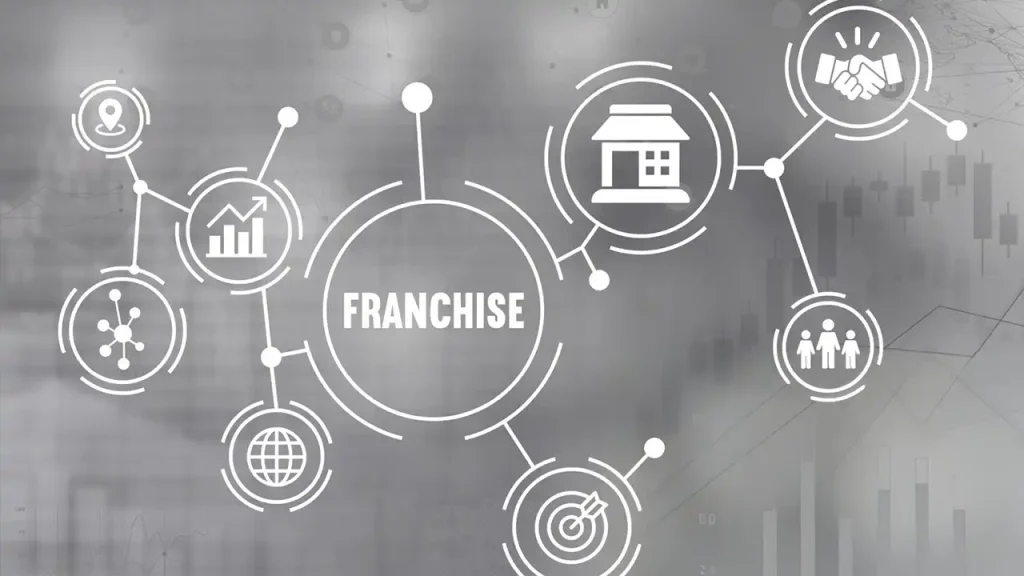The Benefits of Choosing a Franchise to Start Your Own Business

Franchising is a popular business model where a franchisee gains the right to operate a business using an established company’s brand, products, and operational methods. This model allows individuals to start a business with a proven track record and an established customer base.
The franchise industry has grown significantly over the years, becoming an attractive option for entrepreneurial-minded individuals. With the right guidance and investment, owning a franchise can pave the way to financial stability and business success. For instance, franchising encompasses a broad range of industries, from fast food and retail to healthcare and education. This variety offers potential franchisees numerous options to find a business that aligns with their passion and skill set.
Why Choose a Franchise?
Many entrepreneurs opt for a franchise because it offers a higher likelihood of success than starting an independent business from scratch. By consulting with a franchise consultant, potential business owners can explore various franchise opportunities that suit their needs and ambitions. Franchise businesses are more likely to succeed than non-franchise companies, as stated by the International Franchise Association. The main reason for this benefit is the well-known brand, tested business model, and continuous support offered by the franchisor.
Additionally, franchises often come with a comprehensive training program, marketing support, and operational assistance, which can be invaluable for new business owners. These factors establish a solid base for achievement and greatly decrease the chances of launching a new business. Furthermore, franchisors often provide franchisees with a clear and consistent operational manual that ensures all franchises operate similarly, maintaining brand integrity and customer satisfaction.
Market Demand and Brand Recognition
Another compelling reason to choose a franchise is the built-in customer base and brand recognition. When you purchase a franchise, you’re buying into a reputable brand that customers already trust. This level of recognition can take years to achieve as an independent business. Established brands with a positive reputation attract customers more efficiently, leading to quicker and more sustained profitability. Consulting with a franchise consulting company can provide valuable insights into finding the right franchise opportunity that aligns with your goals and maximizes your chances of success.
How to Find the Right Franchise for You
Choosing the right franchise involves careful research and consideration of several factors, including the initial investment, ongoing fees, market demand, and personal interests. Websites like Forbes offer excellent insights into some top franchise opportunities today.

Start by assessing your interests and strengths. Are you passionate about food, retail, fitness, or something else? Knowing what excites you can help narrow down your options. Next, compare the franchise’s financial requirements with your budget. Ensure that initial costs, royalties, and other ongoing expenses are accounted for. Considering the level of support and training from the franchisor, as well as the market demand for the product or service, is essential.
Research and Due Diligence
Conduct thorough research on potential franchises. Look for success stories, read reviews, and contact current franchisees to learn about their experiences. This research will provide a clearer picture of what to expect and help you make an informed decision. Additionally, industry reports, franchise expos, and seminars can be utilized to gather more information and compare different franchise opportunities. It’s also beneficial to consult with a franchise consultant or advisor who can guide you through the selection process and help you avoid common pitfalls.
Steps to Starting a Franchise
- Research potential franchises that align with your goals.
- Contact franchisors and gather detailed information about their business model.
- Seek assistance from a franchise lawyer to examine legal paperwork.
- Secure financing, if necessary, through loans or investors.
- Sign the franchise agreement and set up your new business.
Each step in starting a franchise is crucial. Begin with comprehensive research to ensure that the franchise aligns with your business goals and personal interests. Contacting franchisors for detailed information will help you understand their expectations and support mechanisms. Seeking advice from a franchise lawyer to examine the franchise disclosure document (FDD) is strongly advised in order to understand all legal responsibilities. Securing financing might involve applying for loans, seeking investors, or using personal savings. The final step consists of signing the franchise agreement and setting up your business, which includes finding a suitable location, hiring staff, and marketing your new venture.
Common Challenges and How to Overcome Them
While franchising has many benefits, it also has its challenges. Common issues include high initial costs, strict operational guidelines, and reliance on the franchisor’s reputation. Many of these challenges can be mitigated by seeking advice from experienced franchise consultants and joining franchisee networks. For example, high initial costs can be tackled by exploring various financing options, while strict operational guidelines can be navigated through thorough training and continuous communication with the franchisor. Joining franchisee networks provides a support system and an opportunity to share experiences and solutions with fellow franchisees.
One of the main hurdles is the financial commitment. Franchise fees, royalties, and other costs can add up quickly. These economic challenges can be alleviated by creating a detailed business plan and securing adequate financing. Preparing for unforeseen expenditures is essential to maintaining a reserve fund. Additionally, understanding the franchisor’s fee structure and negotiating terms, if possible, can also provide some financial relief.
Navigating Operational Guidelines
Adhering to the franchisor’s operational guidelines can also be challenging for some franchisees. However, these guidelines are designed to ensure consistency and maintain the brand’s reputation. Embracing the franchisor’s system and seeking support when needed can help overcome these operational challenges. Regular training sessions, workshops, and updates from the franchisor can keep franchisees informed about any changes or improvements in the operational processes. Establishing a good relationship with the franchisor and maintaining open lines of communication can also be beneficial.
Success Stories and Real-Life Examples
Numerous success stories exist in the world of franchising. For example, McDonald’s revolutionized fast food and created countless successful franchisees worldwide. Studying such successful franchise models can provide valuable insights and inspiration. Understanding the strategies and practices contributing to their success can offer useful lessons for prospective franchisees.
Another example is the Subway sandwich chain. Starting as a small sandwich shop, it expanded through franchising and became one of the largest fast-food chains globally. These success stories demonstrate the potential and scalability of franchising. Additionally, they highlight the importance of innovation, customer service, and adapting to market trends, all crucial elements for franchise success.
Final Thoughts on Franchising
In conclusion, franchising offers a viable path to business ownership with a higher chance of success than starting from scratch. By carefully selecting a franchise that aligns with your interests and financials and diligently following the franchisor’s guidelines, you can build a successful and rewarding business. Franchising combines the independence of entrepreneurship with the support and resources of an established network, providing a balanced approach to business ownership.
Whether you’re a seasoned entrepreneur or a first-time business owner, the franchising model provides a structured, supportive environment to help you achieve your business goals. With the proper preparation and commitment, franchising can be fulfilling and profitable. Remember, the key to success in franchising lies in thorough research, selecting the right franchise, and effectively leveraging the support and resources provided by the franchisor.
